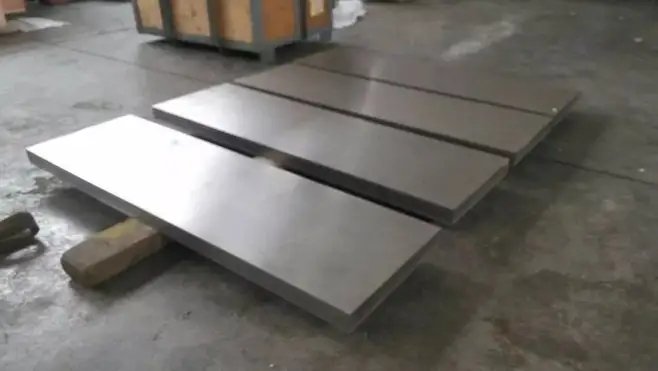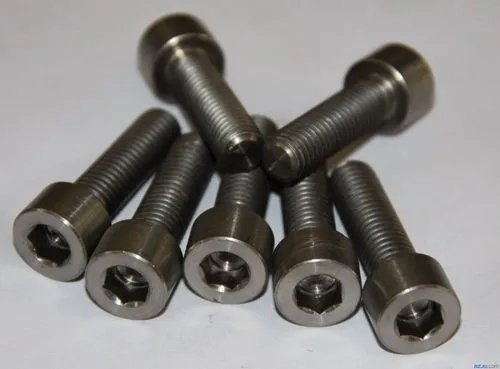In the titanium metal industry, a low price often raises red flags. Given the high value and complex production process of titanium, a deal that's significantly cheaper than the market average usually signals trouble. Cutting corners on material quality, production processes, or quality control is often behind these tempting offers. This article explores the risks of falling for low-price deals in the titanium metal industry and offers practical advice to avoid these pitfalls.
Hidden Costs Behind Low Prices
Low prices can be alluring, but they often come with hidden costs. Some suppliers might present a low initial quote while neglecting to disclose additional costs such as shipping, customs duties, and other fees. These extra charges can significantly increase the total procurement cost.
For example, a buyer chose a supplier with an attractively low quote. However, unexpected additional fees for shipping and customs arose, pushing the total cost higher than a slightly more expensive, but transparent, alternative.
Low-cost suppliers might also struggle with logistics, leading to delivery delays. An aerospace company faced major delays from a cheap supplier who couldn't meet the delivery schedule, resulting in the need for expedited shipping and further costs.
Risks of an Unstable Supply Chain
A reliable supply chain is essential for titanium products. Low-price suppliers, often operating on thin margins, are susceptible to market fluctuations and may struggle to fulfill commitments if raw material prices rise or supply chains are disrupted.
A manufacturer experienced this when a low-cost supplier defaulted on their contract due to rising raw material costs, causing delays and shortages. The manufacturer had to find alternative sources, resulting in significant losses and strained customer relations.
Moreover, low-cost suppliers may lack the resources to invest in advanced technology or maintain strict quality control. This can lead to inconsistent product quality, which is critical for businesses relying on titanium products. For instance, a medical device company had to recall products due to substandard titanium from a low-cost supplier.
The Danger of Faked Certifications and False Claims
Low prices can also be a red flag for fake certifications and false claims. Some suppliers use forged documents to falsely claim their products meet international standards or that their facilities are certified by reputable organizations. This can result in subpar products and project delays.
A company found this out the hard way when they received titanium plates with fake certification documents. The materials did not meet the promised standards, leading to project delays and additional costs. It’s essential to verify the authenticity of certifications, request detailed production documentation, and consider third-party inspections or even personal visits to the supplier.

In our factory, we adhere to the highest industry standards and have the necessary certifications to prove our commitment to quality. These certifications represent our dedication to excellence and ensure that you receive reliable products.
The Long-Term Value of Quality and Reliability
While low prices might seem appealing for short-term savings, the long-term value of working with reliable and reputable suppliers is significant. Trusted suppliers provide high-quality products that meet or exceed industry standards, offer peace of mind, and have stable supply chains.
For instance, an automotive company chose a slightly more expensive supplier known for its reliability and quality. The initial higher cost resulted in consistent quality and fewer production issues, ultimately saving the company money and time in the long run.

Reliable suppliers also offer excellent customer service, including technical support, timely communication, and flexible payment terms. These factors contribute to a smoother procurement process and overall cost savings.
Balancing Cost and Quality
It’s important to recognize that while relatively low prices can offer good value, extremely cheap prices may indicate potential issues. Some smaller workshops, particularly in regions where cost is the primary concern, use recycled materials that may not meet quality standards. This is often seen in South Asian markets where price is a major factor for customers.
However, it's crucial to approach this with sensitivity and objectivity. The focus should be on the quality and value of the product rather than on disparaging specific markets or customers. Our goal is to ensure that all customers receive the best possible value and quality, without compromising on standards.
Conclusion
In the titanium metal industry, the saying "you get what you pay for" is especially true. The temptation of low prices can be strong, but the potential risks and hidden costs often outweigh the short-term savings. By prioritizing quality, reliability, and transparency in supplier relationships, you can avoid the pitfalls of low prices and secure a stable supply of high-quality titanium products. Investing in a reputable supplier is not just a cost consideration—it's a crucial step in ensuring the long-term success of your business.
Share this article
Written by : 钛合金网
Follow us
Table Of Content



